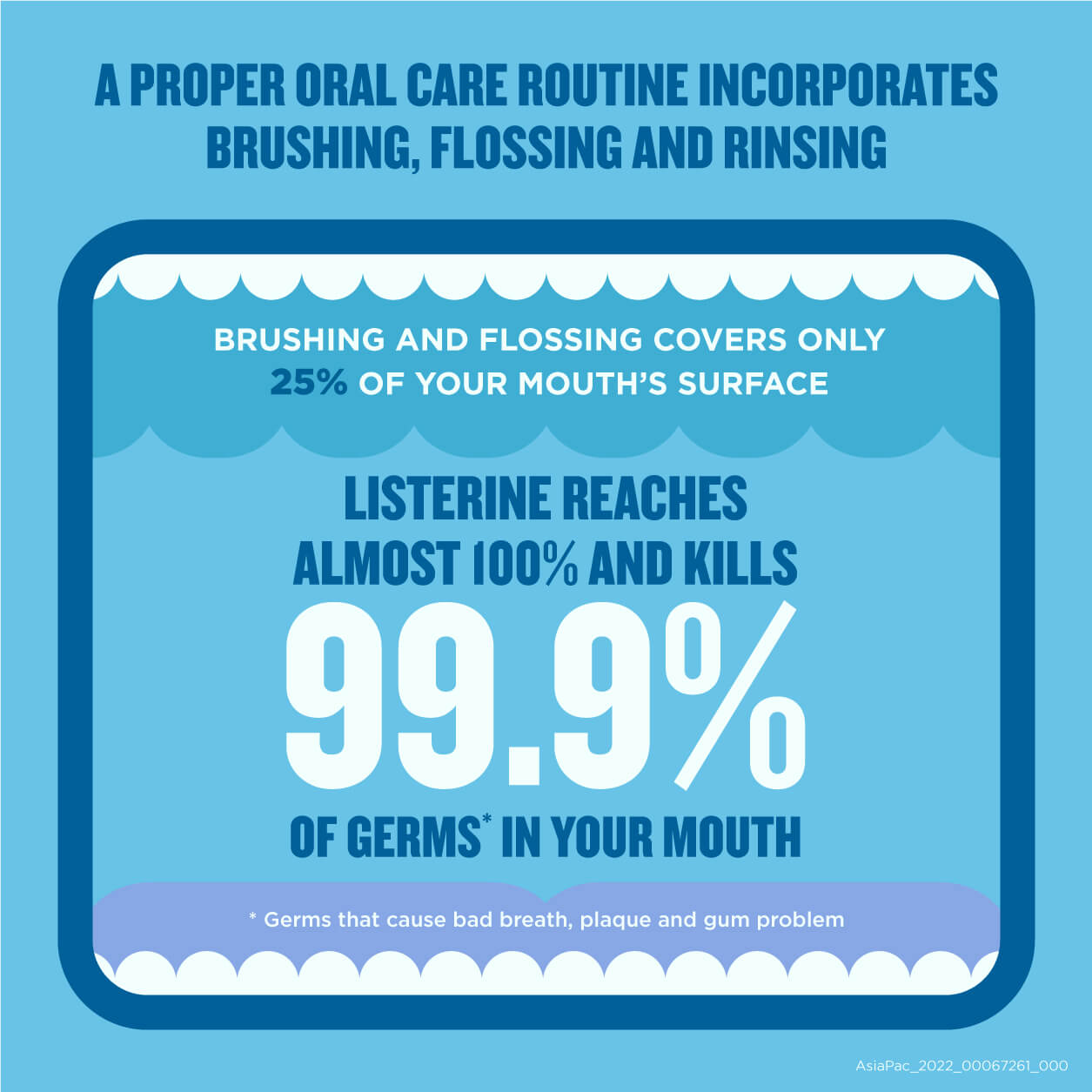Understand the differences between the symptoms and causes of toothache and sensitive teeth so you know how to prevent them.

If your teeth hurt or are causing pain and unpleasant sensations in your mouth, it may be due to toothache or sensitive teeth.
Both toothache and sensitive teeth cause pain or aching in your teeth. They are common problems that affect many people worldwide, and approximately 57% of people have said that they experienced tooth sensitivity.
In fact, dental caries (tooth decay) are the most prevalent Non-Communicable Disease globally and affect all age groups.
The next time you feel a sudden, sharp pain or general discomfort in your teeth or mouth, here’s how to understand if you're experiencing toothache or suffering from sensitive teeth.
What do toothache and tooth sensitivity feel like?
Toothache refers to pain in and/or around your teeth. This pain occurs when the nerve endings in the root of your tooth are irritated.
Teeth sensitivity is usually more of a long-term issue than toothache. It can develop over time due to wear and tear of the enamel of your teeth and/or receding gums.
Although toothache is commonly seen as a one-off problem, it can also be a persistent problem.

What do toothache and tooth sensitivity feel like?
Most people describe toothache as a sharp throbbing pain, but the severity of toothache ranges. For some, toothache is a fleeting pain that is exacerbated by eating or drinking hot or cold food. For others, toothache can be a constant pain.
It can be hard to determine whether the toothache is in your upper or lower teeth because the surrounding area often hurts too. If your lower molar tooth is affected, you may feel pain around your ear, and if your upper teeth are affected, you may feel pain in your sinuses.
Dentinal hypersensitivity may develop as the enamel on your teeth suffers wear and tear, which may happen if you brush too hard.
Worn enamel and receding gums can expose the dentin (the softer, inner part of the tooth), and certain triggers (such as a hot or cold foods) can cause that familiar sharp jolt of pain for sensitive teeth sufferers.
What causes sensitive teeth?
The pain felt from teeth sensitivity is caused by damage to your enamel or gum recession. When the inner part of your tooth (the dentin) is exposed, the nerves that lie within it can become more easily stimulated.
Causes of sensitive teeth include:
1. Receding gums (gums that have pulled away from the teeth to expose the softer, more sensitive parts of the root)
2. Excessive consumption of acidic food and drinks
3. Excessive or forceful brushing
4. Tooth grinding
5. Tooth bleaching
While these sharp shocks or jolts can happen at any time, they are commonly triggered by:
1. Consuming hot or cold food or drinks
2. Consuming sugary or sour food or drinks
3. Breathing in cold air

How to manage sensitive teeth
Dealing with long-term sensitivity pain is difficult, but you can still take steps to prevent it from getting worse. To prevent toothache and sensitive teeth from occurring or recurring, you need to practice good oral hygiene. These tips are also suitable for those who have experience with occasional sensitivity pain, recently recovered from sensitivity pain, had gum surgery, and had whitening treatments done.
Simple ways you can do to help soothe the symptoms of sensitive teeth:
1.Be aware of the common triggers such as sugary, sour, hot, and cold food and drinks. Follow our oral care tips to continue enjoying the foods you love
2.Quit smoking as it can worsen oral teeth problems
3.Brush your teeth twice a day to prevent cavities
4.Brush your teeth gently using a soft bristle brush to prevent gum damage
5.Use a toothpaste that contains fluoride to re-mineralize teeth and prevent cavities
6.Floss your teeth at least once a day to remove food that is stuck between your teeth
7.Visit your dentist twice a year for professional cleaning to deeply clean your teeth
On top of that, you should also use a daily sensitivity mouthwash like LISTERINE TOTAL CARE SENSITIVE MOUTHWASH® to improve plaque control, prevent cavities and provide protection against teeth sensitivity.
Since brushing can miss a billion germs as it only targets 25% of your mouth, mouthwash helps to clean hard-to-reach areas like between your teeth and under your gums.
The takeaway
Now that you know the differences, symptoms, and causes of toothache and sensitive teeth, you are better equipped to manage sensitivity pain while enjoying the foods you love.
If you’re experiencing persistent pain that is more severe, it is likely a different kind of oral pain. Please seek advice from your dentist to manage toothache and other types of severe oral pain.

